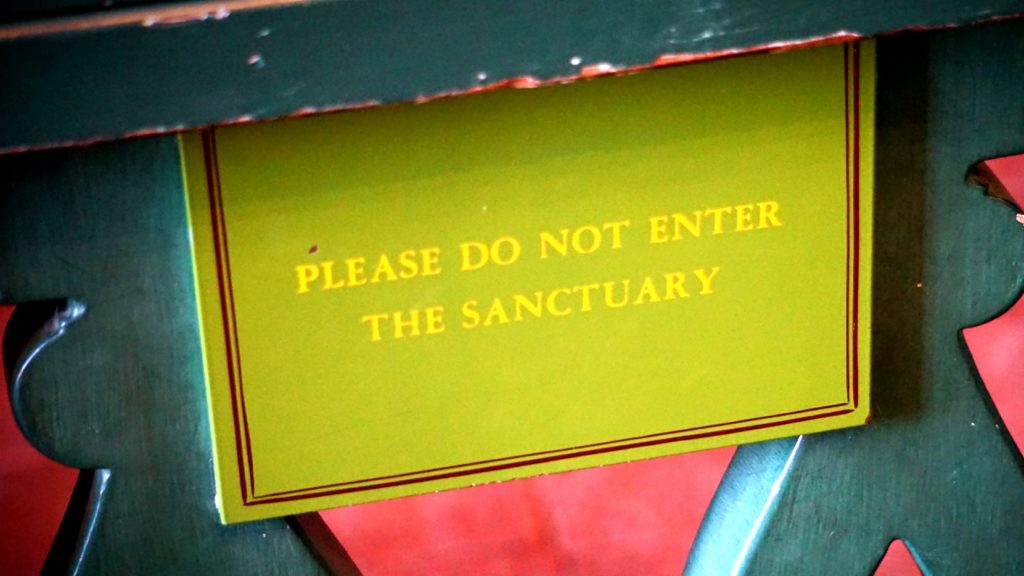
Google’s Search App in the Android environment worked much like any web browser. When a user typed in a web address, the app would connect to the host web server and deliver up a copy of the requested web page to be viewed in the app. Between 2018 and 2020, Google configured the app so that a frame at the bottom of the screen accompanied the requested page. A user could click to expand the frame to display larger advertising banners. Google did not pay the owners of the websites over which these banners were displayed. The ads were triggered automatically using algorithms, presumably based on the content of the requested website.
A group of website operators sued Google in federal court, seeking to make the case into a class action. Plaintiffs asserted a number of claims under California law, including trespass to chattels and unjust enrichment. Google filed a motion to dismiss the case for failure to state a claim upon which relief could be granted. The lower court denied the motion to dismiss. Usually, a party who loses a motion to dismiss does not yet have the opportunity to appeal such a decision (that right is normally reserved for final decisions of a court). In this case, however, the court permitted Google to seek review of the denial of the motion to dismiss. On appeal, the Ninth Circuit reversed the lower court’s decision and ordered that the case be dismissed.
No trespass to chattels
Trespass to chattels is a tort that enables a party to recover when another has interfered with possession of personal property. It is in the nature of theft (what in civil proceedings would be called “conversion”) but “not sufficiently important to be classified as conversion”. Plaintiffs’ theory essentially was that when Google placed ads on top of their web pages, Google was messing with plaintiffs’ possessory interest in plaintiffs’ web pages. The “chattels” at issue were the copies of the web pages.
The court held that plaintiffs’ trespass to chattels claim failed because they did not allege a sufficient possessory interest in the copies of their web pages, nor did they allege an appropriate property interest in the pages.
As for the lack of possessory interest, the court observed that (1) the pages were created when a user visited the website using the Search App, (2) the copy existed on the user’s device, and (3) the page was deleted when the user left the page. Because the purported possessory interest was “entirely dependent” on the actions taken by individual users, plaintiffs could not claim ownership of such interest.
And as for the lack of property interest, the court held that the lower court erred in focusing the property-ownership analysis on the website itself, rather than the website copies that appeared on the user’s mobile device. It then applied a three-part test set out in Kremen v. Cohen, 37 F.3d 1024 (9th Cir. 2003) to determine that (1) a website copy is not “capable of precise definition” because there is no single way to display a website copy, (2) a website copy is not “capable of exclusive possession or control” because the user is the one who dispenses with the page in his or her local environment, and (3) there is no “legitimate claim to exclusivity” over website copies, making them different than other types of tangible property recognized as being subject to trespass.
Unjust enrichment claim preempted by federal copyright law
The court used a two-part test to assess whether plaintiffs’ state-law claim for unjust enrichment conflicted with the federal Copyright Act. The first step of the test examined the nature of how plaintiffs’ websites were presented, and led the court to determine that the websites involved the subject matter covered by federal copyright law.
In the second step, the panel compared the rights claimed by plaintiffs under their unjust enrichment claim to see whether they were equivalent to those rights protected by federal copyright law. The court held that it was appropriate to focus on the rights asserted by plaintiffs. It found that the described action of placing ads over the websites resulted in the creation of a derivative work – a right enumerated in the Copyright Act.
Additionally, the court found that plaintiffs’ state-law claim did not include any additional elements that would distinguish it from a typical federal copyright claim. This lack of an “extra element” was a key factor in the panel’s conclusion. As a result, the panel determined that plaintiffs’ state-law claim was indeed preempted by federal copyright law, aligning the state claim with the broader protections offered at the federal level.
What the case means for business
The ruling holds significant implications for digital enterprises, particularly concerning advertisement placement and risk management. This case underscores the legal complexities of embedding advertisements on digital platforms, highlighting the importance of legal compliance and awareness of intellectual property laws. Additionally, it emphasizes the need for diligent risk management in the company’s operations. This case serves as an important reminder of the potential legal risks associated with digital content and advertising practices, making it imperative for companies to maintain a proactive approach to legal compliance and risk mitigation in these areas.
Best Carpet Values, Inc. v. Google, LLC, 2024 WL 119670 (9th Cir., January 11, 2024)
See also:


 The Copyright Act is a federal law, and is drafted to “preempt” state laws that purport to give individuals rights that are “equivalent” to rights granted under the Copyright Act. The purpose of this preemption is to displace the effect of any equivalent state law, so that the federal framework gets to deal exclusively with copyright.
The Copyright Act is a federal law, and is drafted to “preempt” state laws that purport to give individuals rights that are “equivalent” to rights granted under the Copyright Act. The purpose of this preemption is to displace the effect of any equivalent state law, so that the federal framework gets to deal exclusively with copyright.